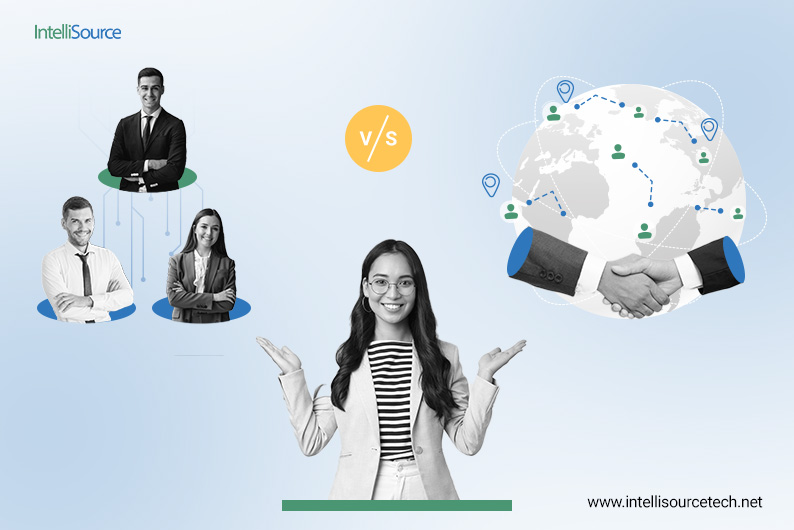Software development world is rapidly changing and at the core of this change is the increasing trend of AI Agents in Software Development. These smart systems aren’t simply automating tasks, they are rewriting the way code is written, tested and deployed. Competitive businesses need to change with these changes or they will be left behind.
Thanks to AI’s capability to learn, iterate and collaborate, software development is getting faster, smarter, and cheaper. But this increase is accompanied by challenges. This blog discusses the role of AI agents in changing the era of software development and what businesses need to learn and adapt to in order to ride this wave of technology
What Are AI Agents in Software Development?
AI agents in software development are intelligent machines based on machine learning, natural language processing (NLP) and sometimes reinforcement learning that can execute different development tasks either autonomously or as part of team work with humans.
They are designed to:
- Write or suggest code snippets.
- Identify bugs and improve performance of software.
- Study requirements and convert them into functional features.
- Work with team members using chat tools or code repositories.
The examples of AI agents include: GitHub Copilot, Amazon CodeWhisperer, Tabnine and OpenAI Codex. These tools transcend traditional automation through the application of context-aware reasoning to offer real time, dynamic help during all phases of the development lifecycle.
Must Read: Custom Business Software Development: Is It the Right Choice for Your Company?
How AI Agents Are Changing Software Development
AI is not a support tool anymore; it became a productive participant. Let’s see the key areas where AI Agents in Software Development are making a significant difference.
1.Faster Code Generation
AI agents are pro at producing boilerplate code and complicated algorithms within seconds. With natural language prompts that can be understood, developers can now describe what they want in plain English and the AI writes the code for them.
Key Benefits:
- Minimizes time spent on recurrent coding activities.
- Increases productivity at all levels of developers.
- Supports new programmers by providing them with best practices and efficient logic structures.
For example, a junior developer can request an AI agent to “write a function that connects to a MySQL database and retrieves customer records” and within seconds a full functioning script appears.
2.Smarter Testing & Debugging
Bugs and errors are unavoidable but AI agents are changing the way we are dealing with them.
AI-powered debugging tools:
- Carry out an analysis of huge volumes of logs and performance data.
- Predict and identify anomalies prior to them becoming problems.
- Propose corrections and even, in some cases, automatically apply patches.
In a traditional setup, debugging could take hours or days. With AI Agents in Software Development, this time is significantly reduced. These tools keep on learning from past bugs, making them more efficient through time.
3.Improved Collaboration
Modern development is highly dependent on team work. AI agents are virtual members of a team monitoring conversation, tracking progress, and proposing solutions in real time.
AI can:
- Connect with platforms such as Slack, Microsoft Teams and GitHub.
- Summarize meetings or threads.
- Monitor project progress and recommend next course of action.
By so doing, they minimize communication gap between developers, testers, project managers and clients.
Imagine a team using an AI agent to turn technical requirements into actionable items or using the AI to automatically update project timelines as code changes.
4.Cost Efficiency
Businesses always look for ways to reduce operational cost, and AI Agents in Software Development are proving useful to this cause.
They help companies:
- Decrease dependence on big development groups for routine or simple tasks.
- Reduce the expense of error correction and quality assurance.
- Accelerate development cycles which have an immediate effect on reducing time-to-market costs.
It may not be economically viable for all businesses, particularly startups to hire an entire team of senior developers. AI offers a leveller by increasing the productivity of small teams.Challenges Businesses Should Be Aware Of
Although, AI agents have many benefits, they also have challenges. Blind adoption without understanding the risks can backfire.
Challenges Businesses Should Be Aware Of
Although, AI agents have many benefits, they also have challenges. Blind adoption without understanding the risks can backfire.
Data Security and Privacy
AI agents are highly dependent on Data. If not properly set up sensitive information may be exposed or mishandled.
Mitigation Tips:
- Choose AI tools which are compliant with data protection legislations such as GDPR (General Data Protection Regulations) or HIPAA (Health Insurance Portability and Accountability Act.
- Monitor what information third party platforms obtain.
- Implement access controls and audits.
Over-Reliance on AI
- Over-dependence on AI may discourage the developers to build critical thinking and creative problem-solving.
- AI can only replicate what its learned. It can’t get over new programming paradigms or abstract architectural problems decently; at least not for the moment.
- Balance is key. Use AI to support but not to replace human expertise.
Skill Gap
It is not the case that all organizations can train and manage AI agents in their own organization.
Solution:
- Train your existing teams in AI tools and platform.
- Work with specialists, or hire Custom Software Development Company in Florida which will be able to integrate AI agents properly.
Accuracy and Hallucinations
- AI agents sometimes generate incorrect outputs, or ‘hallucinated’ outputs: code that looks like it should work, but doesn’t.
- In an industry such as finance or healthcare or aerospace, where accuracy is non-negotiable, this would be risky.
- Test and validate the codes generated by AI thoroughly.
What Businesses Need to Do Now
For the businesses to successfully integrate the AI agents in software development they need to come up with a thoughtful forward-looking strategy. It’s not just about acquiring new tools; it’s all about changing workflow architecture, upskilling teams and establishing a direction for intelligent automation.
Educate and Train Teams
- Apart from the basic training (i.e., AI literacy) organizations must develop a learning culture that is AI-centric. Create cross functional learning where the developers, QA testers and the project managers are exposed to AI assisted workflows. Establish mentorship programs to train early adopters or tech savvy employees; train other people on how they can practically use AI tools.
- To keep the momentum going, establish AI learning channels inside your organization (Slack groups, weekly webinars, or news weekly), where teams will share their insights, troubleshoot problems, and discuss what is emerging as best practices. Incorporation of AI topics into the regular performance reviews and personal development plans can also guarantee long term skill growth.
Define Use-Cases
- Take strategic action by doing a thorough audit of your software development life cycle. Lay out stages whereby manual input is high, outputs are predictable, or human error occurs frequently. Apply these insights to drive which processes can most benefit from AI augmentation.
- Also, other use-cases may be outside traditional development such as user behavior analysis, sentiment tracking from customer feedback or automated report generation. These neighbouring functions can be enhanced as a result of AI integration and generate larger organizational efficiencies.
- Interact with stakeholders at various departments in order to find pain points and opportunities. Cross-functional discussions are often the place where unintended locations where AI can be used to drive value are revealed such as compliance monitoring, code quality checks or infrastructure optimization.
Choose the Right Tools
- Considering AI development tools, it’s very important to consider not only the current functionality but also the future. Check the tool’s update frequency, roadmap, rate of innovation to be sure it will remain responsive as your business grows.
- Choose tools with excellent data governance policies, if you deal with sensitive data. Search for agents that will support on premise deployment or private cloud environments for easier control. Tools which provide transparency of suggestion generation – explainable AI models – can also help establish trust among developers.
- Look beyond the tool, review its environment. A lively developer community as well as full API documentation, and responsive channels for support can have a massive effect on adoption success and troubleshooting effectiveness.
Start Small, Scale Fast
- Co-creation of a framework for evaluating AI outputs, human-in-the-loop checkpoints to enable the developers to review and validate AI produced code before deployment. This balanced approach facilitates quality control while creating team trust in the abilities of AI.
- When the initial results are promising, develop a roadmap to increase the integration of AI into more complex systems. Think about establishing internal AI task forces to monitor rollout plans, establish usage policies, and monitor business impact over time.
- Merge AI use into your CI/CD pipelines and best practices of development to speed up scaling. The automation of such processes such as code reviews, regression testing or test case generation can create compounding time savings over multiple sprints.
The emergence of AI Agents in Software Development is not a future—it is reality of today. Businesses which know how to use these tools effectively will unlock great advantages in speed, cost and innovation. Businesses need to be proactive and informed from knowing the technology to training teams and managing risks.
Whether you need to increase productivity for a startup or you wish to innovate faster as an enterprise, this is the time to invest in AI-powered development strategies. If you do not have internal resources, then partnering with a Custom Software Development Company in Florida, can be your first step towards embracing the future.
AI won’t replace developers but developers who use AI will replace those who don’t.
Must Read: What Is Custom Software Development & Who Needs It?





